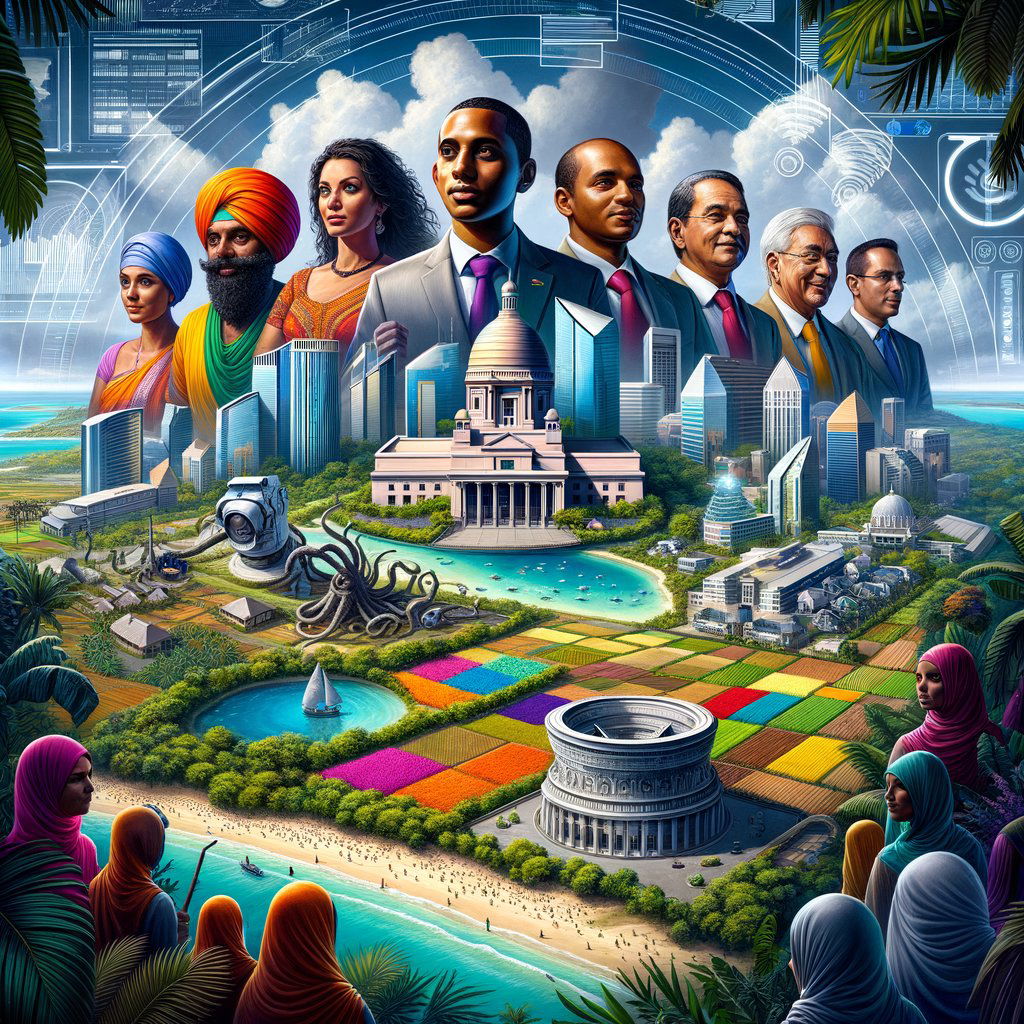Image created by AI
Mauritians Cast Ballots Amidst Wiretapping Controversy as Jugnauth Seeks Reelection
Mauritius, the island nation celebrated as a bastion of democracy in Africa, is abuzz with electoral fervor as citizens prepare to vote in a crucial national election on Sunday. Prime Minister Pravind Jugnauth is vying for a second term, with the shadow of a wiretapping scandal looming large.
Positioned roughly 2,000 kilometers off Africa's southeastern coast, Mauritius is lionized for its robust democratic traditions and a flourishing economy. Its economic success story, woven with threads from the finance, tourism, and agricultural sectors, took root following its independence from British rule in 1968.
Since succeeding his father in 2017, Jugnauth, 62, has been at the helm, consolidating his administration's power in 2019 with a Parliament majority secured by his center-left Militant Socialist Movement (MSM)-led alliance. The MSM has orchestrated the government's direction since 2009, culminating in the formation of Jugnauth's five-party People's Alliance.
The opposition, fronted by Navin Ramgoolam's Alliance for Change, poses a contentious challenge to Jugnauth's bid for continued leadership. The election will decide the allotment of 62 parliamentary seats, with a majority enabling the election of the prime minister.
An additional eight lawmakers will take their place in Parliament through the nominations of the Electoral Supervisory Council, ensuring representation extends across the board.
Mauritius's distinction as a “beacon of success for sub-Saharan Africa,” as stated by the World Bank, is multipronged. Despite the COVID-19 pandemic's economic impacts, which temporarily retracted its high-income status in 2020, it remains one of the most prosperous nations on the African continent.
The blend of picturesque tropical beaches and high standards of living draws not only tourists but speaks volumes of the Human Development Index, which places Mauritius second in Africa, just behind the Seychelles.
Cultural richness is an integral part of the Mauritian identity, with over 60% of residents tracing their lineage to Indian roots. A linguistic mosaic is evident in the widespread use of Mauritian Creole—interlacing French with English and other linguistic influences reflects the island's history and diversity.
U.S. Congress-funded Africa Center for Strategic Studies highlights Mauritius's fusion of stability and strong governance, creating a conducive climate for financial investment. Positive outcomes are seen in the healthcare sector, educational expansions, and hefty leaps in per capita income over the last decade.
In a significant geopolitical victory, Jugnauth's administration recently swayed the British government to cede sovereignty of the Chagos Islands, reinforcing Mauritius's longstanding territorial claim.
However, a blanket ban on social media platforms one week before the elections—announced in response to the wiretapping scandal—stirred public dissent and raised eyebrows internationally. Allegations of election irregularities in 2019, combined with the unauthorized release of private conversations involving politicians and high-profile figures, have tainted Jugnauth's previously untarnished image.
While the social media prohibition has since been lifted, concerns linger over government surveillance's potential involvement, prompting organizations like Reporters Without Borders to demand thorough investigations.
As Mauritius approaches its electoral crossroads, citizens weigh the virtues of stability and economic progress against crucial civil liberties concerns. The election's outcome will not only shape Mauritius's political landscape but also signal the resilience of its democratic institutions.










